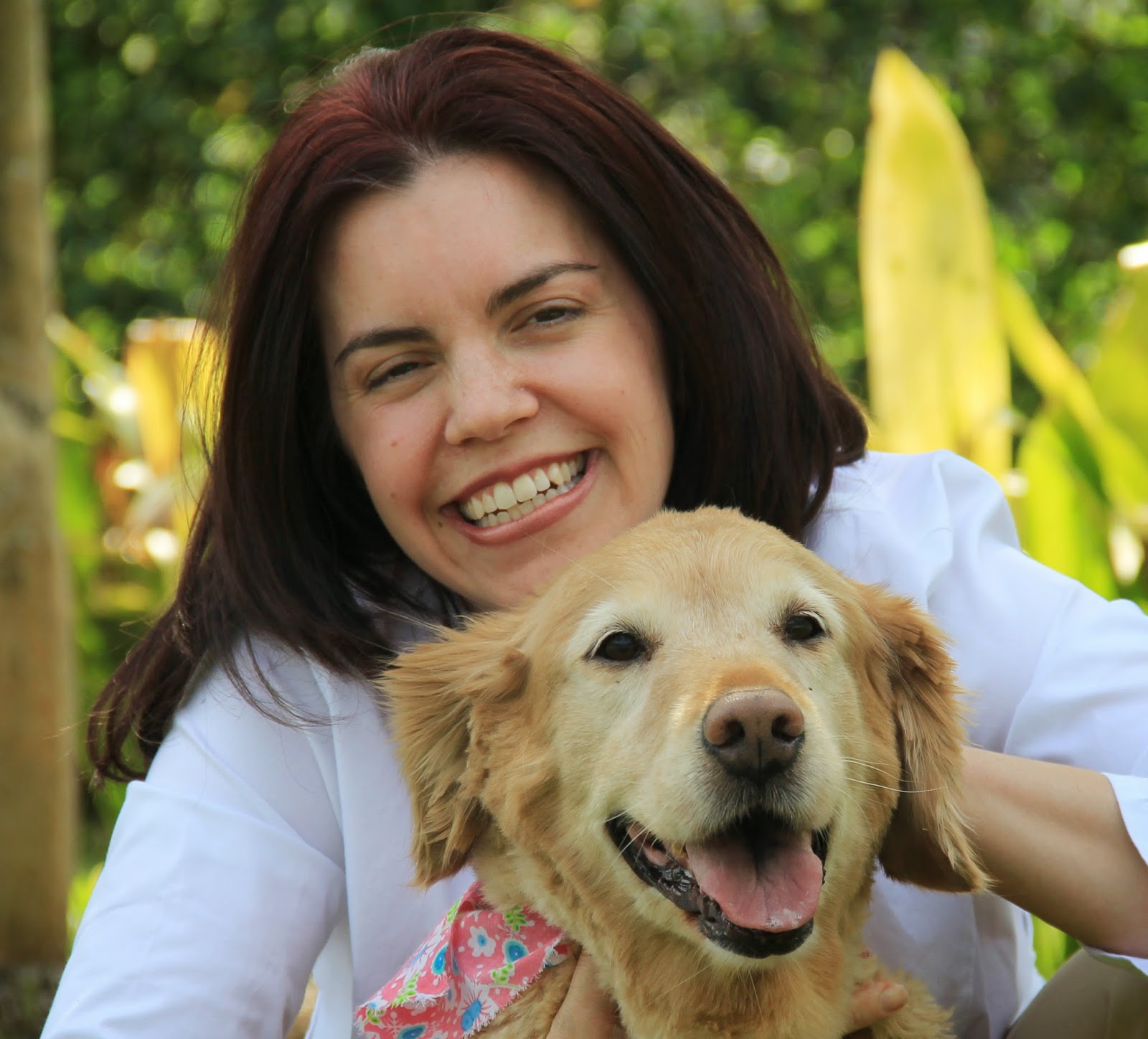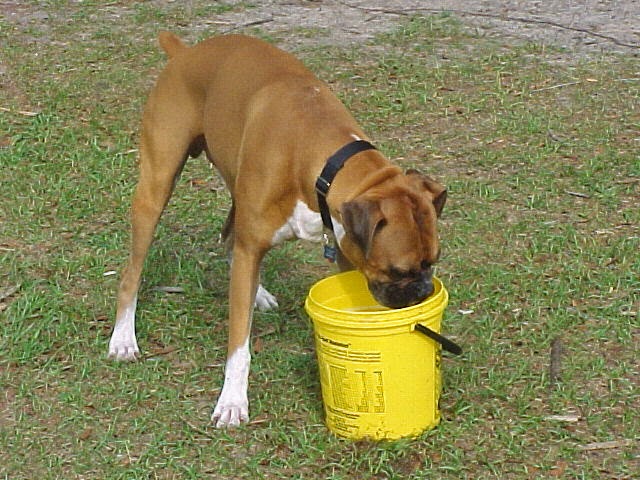Dogs
by Dr. Julie Buzby, DVM








- Ask The Veterinatian About Coprophagia
by Julie Buzby, DVM courtesy Dayland via Flickr.com Looking GuiltyDear Dr. Buzby, How do we get our pups to stop eating their own, or other dogs, poop? Thanks, Lori, ----------------------------------------------------------------------------------...
- Ask The Vet About Nail Care + Posture
by Dr. Julie Buzby, DVM Buffercourtesy ToeGrips.com Nail Care the Right WayDuring 2014, I’ve been contributing posts in a series titled, “Ten Tips for Fido’s Longest Life.” To date, we’ve covered topics such as weight management, dental...
- Dr. Julie Addresses Pet Chiropractic Care
by Dr. Julie Buzby, DVM Time for an Adjustment for Fido? Read on...Prior to beginning my training for certification through the American Veterinary Chiropractic Association (AVCA) in 1998, my only experience with chiropractic was from a distance. ...
- “dirty” Water Is Dangerous For Dogs
By Ruthie Bently What exactly is “dirty” water? Dirty water is water that has been polluted, either from something being put into it directly or indirectly from a change in the environment. A perfect example of dirty water would be water with lawn...
- Puppy Diarrhea
The joy of bringing a cute puppy is boundless. However, along with happiness, you are being assigned the responsibility of taking care of your cuddly companion. Puppies of all dog breeds are very inquisitive and many times, they end up ingesting...
Dogs
Ask the Vet About Giardia
by Dr. Julie Buzby, DVM
 |
| Help Avoid Giardia with Fresh Water at the Dog Park |
Dear Dr. Julie,
Could you please cover Giardia-what it is, what it does, and all the ways a dog can get it. I recently learned from my vet that animal droppings have runoff and eating their droppings can cause this illness. Please fill us in.
Dee
Dee
---------------------------------------------------------------------
Dear Dee,
Giardia is a microscopic parasite known as a protozoa, which can cause gastrointestinal symptoms in dogs, cats, and people.
The organism has two life stages—the tough “cyst” form for transmission outside the body, and the active “trophozoite” form which thrives in the small intestines.
Dogs contract the protozoa by swallowing the cysts which have been shed in the feces of other infected canines. The cysts may be found in contaminated water, soil, and even on a pet’s fur.
After being ingested and passing into the intestines, the cysts change into the “trophozoite” or feeding form and attach to the wall of the dog’s intestine. Eventually this can produce symptoms, namely foul-smelling diarrhea which may contain blood or mucus, because of damage to the wall of the intestine. However many infected animals never show symptoms. An infected dog will eventually pass cysts in his stool, which continues the life cycle when another dog consumes those cysts.
Diagnosis is often made based on clinical signs, but can be confirmed by special fecal examinations under a microscope or through a newer SNAP test on the stool which checks for Giardia cell proteins.
Treatment is usually fairly straightforward with prescription medications.
One up side to the harsh winter many of us endured is that alternate freezing and thawing cycles will kill Giardia cysts in the environment.
Your question eluded to the transmission of Giardia to dogs from wild animals, and the good news is that Giardia is fairly “species specific”, meaning that generally cats don’t get Giardia from dogs, and vice versa. So the droppings of fox, coyote, and feral dogs would be my main concern for transmission.
As a final note, feces (and urine) from a variety of animals, ranging from deer to raccoons, can contain internal parasites, bacteria, and protozoa which could cause your dog to become ill. Certainly your vet’s advice to do your best to prevent your dog from coming in contact with animal droppings is wise!
Dr. Julie Buzby is a homeschooling mom of seven, American Veterinary Chiropractic Association and International Veterinary Acupuncture Society certified holistic veterinarian, and passionate advocate for canine mobility.In her free time she serves on the Advisory Board for The Grey Muzzle Organization. She can be found at Twitter @DrBuzby and on Facebook.com/ToeGrips. You'll also find more of Dr. Julie's posts at our Ask the Vet Archives page.
Here are a few of her articles that may be of interest:
- 10 Tips for Fido's Longest Life
- Leaner Pets Live Longer
- Finicky Eaters
- Our Vet's Best Advice on Nutrition
Dr. Julie's opinion or advice does not replace an actual exam with a veterinarian.







- Ask The Veterinatian About Coprophagia
by Julie Buzby, DVM courtesy Dayland via Flickr.com Looking GuiltyDear Dr. Buzby, How do we get our pups to stop eating their own, or other dogs, poop? Thanks, Lori, ----------------------------------------------------------------------------------...
- Ask The Vet About Nail Care + Posture
by Dr. Julie Buzby, DVM Buffercourtesy ToeGrips.com Nail Care the Right WayDuring 2014, I’ve been contributing posts in a series titled, “Ten Tips for Fido’s Longest Life.” To date, we’ve covered topics such as weight management, dental...
- Dr. Julie Addresses Pet Chiropractic Care
by Dr. Julie Buzby, DVM Time for an Adjustment for Fido? Read on...Prior to beginning my training for certification through the American Veterinary Chiropractic Association (AVCA) in 1998, my only experience with chiropractic was from a distance. ...
- “dirty” Water Is Dangerous For Dogs
By Ruthie Bently What exactly is “dirty” water? Dirty water is water that has been polluted, either from something being put into it directly or indirectly from a change in the environment. A perfect example of dirty water would be water with lawn...
- Puppy Diarrhea
The joy of bringing a cute puppy is boundless. However, along with happiness, you are being assigned the responsibility of taking care of your cuddly companion. Puppies of all dog breeds are very inquisitive and many times, they end up ingesting...
